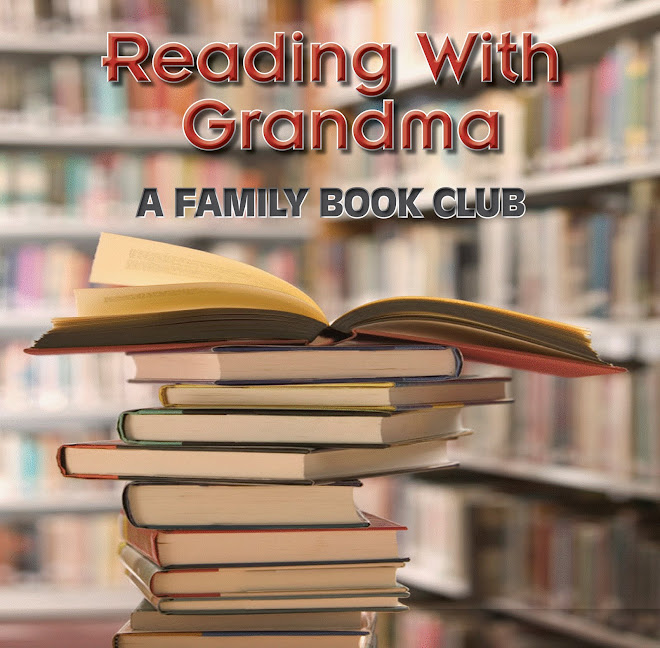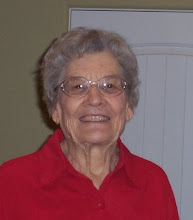Wednesday, January 19, 2011
Jane Eyre
We have enjoyed the comments posted about The Actor & The Housewife by Shannon Hale. Feel free to continue making comments, but it is time to get going on another of Grandma's favorites.....or at least it used to be. The following are her comments on it this time around:
"I am enjoying reading Jane Eyre (by Charlotte Bronte) again, but I think I liked it more when I first read it. Now I am getting more critical and find it hard to stick with for long periods of time. I put it down and read something more frivolous or relaxing, then take it up again. It was first published in 1847 and is so different from the very modern novel we just finished. We do see life differently now in many ways, but I am impressed with the lasting values expressed in Jane Eyre. Integrity and goodness remain the same in time. There is much to admire in Jane's character. She is a little fighter."
Subscribe to:
Post Comments (Atom)











Well, I have not commented in a while, but I have been reading in spurts. I managed to read My Antonia, which I liked very much, but it's too late to offer any substantial comment on it.
ReplyDeleteSo just briefly, I loved its nostalgic voice. Living now in the Midwest, I am struck by how cultivated and corporatized all of the land is. It is a rare thing to see any true "wilderness." It is equally rare to come across a true "family farmer" around here, at least one who is not somehow dependent on the government for assistance. The game has changed so dramatically. But there is a slow push to revitalize that old pastoral ethic. I hear occasionally of people who have purchased some cheap land and are trying to live healthy, independent lives as families on the prairie. After reading Cather, it's hard not to wish I had the guts to learn what is necessary to make that kind of a go myself, not only for my sake, but for the sake of my kids. What rich and refined memories are created out of a life that demands physical and intellectual work in a setting so overwhelmingly beautiful and dangerous, and where distractions are few but serve to enliven rather than dull the senses. I notice here that my prose has pretentiously assumed a Bronte-esque gentility. My apologies. So that is my segue . . .
As for Jane Eyre: I had never read it before. I had read a little Charlotte Bronte. A professor of mine once required Villette, and if you like Jane Eyre, you will like Villette. So I knew roughly what kind of writing to expect. I remember Villette had rich Gothic, supernatural overtones that I really liked. So naturally I was not disappointed by Jane Eyre. I truly enjoyed it from start to finish.
ReplyDeleteSo much struck me as interesting, and I know this note will end up way longer than I want it to. So I'll just make a couple of small observations. Rochester has Jane pegged. She truly is fairy-like. The way she withdraws from one place, roams quietly to the next, observes her surroundings with an eye/ear that seems a sphere removed from the world she haunts but never seems entirely to inhabit. She seems almost imperceptibly at first (but profoundly in the end) to have more effect on her surroundings than her surroundings have on her. Every place she stays alters dramatically for better of worse, like spells follow her, driving people to death or madness in some cases.
She is also of course haunted along the way. I'm sure we all enjoyed the many religious allusions. They recall a time when theology mattered and, I think, made people's thoughts way more interesting.
One of my favorites: Chapter 28, the devastating chapter when Jane quits Thornfield and ends up wandering and begging. That second night (third?), she is stuck in the moors, drenched in torrential rain, seeking shelter in crags and bushes, when she notices the faint light in the window of the "Moorhouse," which leads to her salvation in the form of her beautiful cousins, whose faces she studies from the window (another remove) for signs of goodness. The cousins take her in and nurse her with a kind of angelic, effortless grace.
I have to wonder if the hymn "Lead Kindly Light" might have been one of the inspirations for this chapter. The first and third verses:
LEAD, Kindly Light, amid the encircling gloom
Lead Thou me on!
The night is dark, and I am far from home—
Lead Thou me on!
Keep Thou my feet; I do not ask to see
The distant scene—one step enough for me.
So long Thy power hath blest me, sure it still
Will lead me on,
O'er moor and fen, o'er crag and torrent, till
The night is gone;
And with the morn those angel faces smile
Which I have loved long since, and lost awhile.
The hymn was written a decade or so before the book was published, so I might be cutting it close to say there is a connection. But anyway, it made the chapter more powerful to me as a reader.
----
There. I knew the pithy comments in my head would come out long-winded. My apologies!